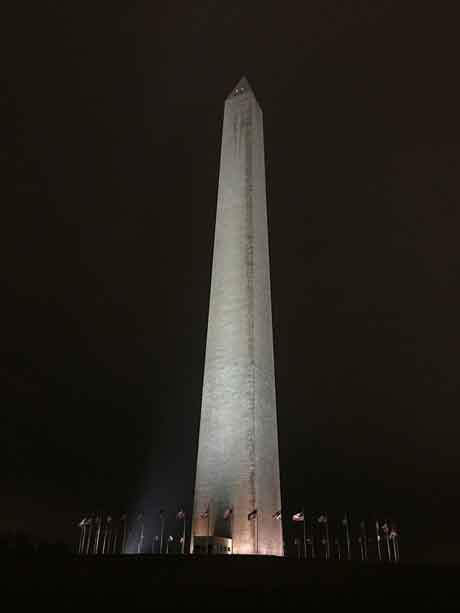
O to break loose, like the chinook
salmon jumping and falling back,
nosing up to the impossible
stone and bone-crushing waterfall –
raw-jawed, weak-fleshed there, stopped by ten
steps of the roaring ladder, and then
to clear the top on the last try,
alive enough to spawn and die.
It was the cry "O to break loose" that felt true, that struck a nerve. We are such struggling salmon, thrashing up the rapids, and I'm an old one – of prime age to be carried off by the pandemic, if I touch the wrong door handle.
And yet, I am caught – at least for a moment, while I am safe – in cross-currents of other emotions: I am amazed to find that when I get up in the morning these days, I feel exactly the thing that Lowell described in his second stanza:
now my body wakes
to feel the unpolluted joy
and criminal leisure of a boy –
I can't account for it – a paradoxical sense of freedom in the midst of quarantine. I feel "the criminal leisure of a boy." Perhaps one always enjoys a sense of delicious, guilty exemption as long as private luck holds.
I remember a story that Malcolm Muggeridge told about Graham Greene. Muggeridge, the English journalist, television personality, and moralist, ran into Greene in the middle of the night in London, during the Blitz in 1940. Hitler's bombs were falling; the city was in flames. Greene's face wore an expression of radiant joy. But why? Muggeridge later speculated that Greene – the Catholic novelist noted for what might be called his theological relish of sin, a sort of Lucifer's delectation in the flickering interplay of abasement and defiance – felt that he was finally in his natural element. London in flames was the place where he had always secretly wished to be: that is, in hell.
That's not my case at all. I take no sneaking pleasure in the calamity; I dread it. Why, then, my exhilaration? It is because, cutting through natural fear, there is the excitement of historical witness in the proximity of danger. Sheer drama – even disaster – may rejuvenate: I am still in history. I am not dead yet. I am learning . . . something large. Calamity has much to teach.
I met Robert Lowell one evening in the senior common room when I was an undergraduate at Harvard. We'd come at the house master's invitation. The rest of us drank sherry in genteel thimbles. Lowell, the guest of honor, drank whiskey from a glass the size of a small washtub. He tossed it down in gulps – as if to quench a mental fire.
Lowell's face wore a thin glistening of sweat; his eyes burned through his thick glasses – an agitated shine. He talked fast. He was on the brink, I learned later, of one of his surges of mania. Soon, he would be back in McLean Hospital, out in Belmont – the famous mental institution that catered to what Lowell, a repeat visitor, called "the Mayflower screwballs." Ralph Waldo Emerson's brothers did time there, too, along with William James, and, in Lowell's era, the poets Sylvia Plath and Anne Sexton.
Lowell published "Waking Early Sunday Morning" at a time, 1967, when the country itself was going crazy, boiling with hatred – as it is now. Civic rage was pandemic. The poet's private mania and America's public breakdown were in some mad harmony with one another.
Reading the poem again, I am struck by the threads of calamity that connect the moment then with the moment now.
Only man thinning out his kind
sounds through the Sabbath noon, the blind
swipe of the pruner and his knife
busy about the tree of life . . .
Pity the planet, all joy gone
From this sweet volcanic cone.
In those days, Lowell was desperate about the war in Vietnam. His friend, Eugene McCarthy, the antiwar senator from Minnesota, would soon announce for the presidency, starting his campaign to depose Lyndon Johnson. LBJ was as hated by half the country as Donald Trump is now. Johnson would return, by and by, to his ranch in the Texas Hill Country, where he would let his hair grow long over his shirt collar as he drank Scotch and smoked cigarettes and sickened and waited to die.
Ancient Chinese tradition held that the emperor ruled by the mandate of heaven. If he was deposed, he had lost the mandate of heaven. If the land was afflicted by flood or famine or plague, that, too, meant that heaven had withdrawn its approval.
Johnson lost the mandate of heaven in 1968. (His war did not entirely shut the country down, however; what we have in 2020 carries us into a new dimension of experience as a nation – and a world.) But perhaps the coronavirus also speaks of divine displeasure. Of course, people always say that in the face of natural disaster. Some people believed, in Ronald Reagan's time, that AIDS was a stroke of divine retribution.
We live in history – and calamity has a lot to teach us. Some say that we learn only by suffering and disaster. I remember another piece of poetry from the 1960s – the shining and archaic and chivalric final sentence of John Kennedy's inaugural address: "Let us go forth to lead the land we love, asking His blessing and His help, but knowing that here on earth G od's work must truly be our own." The last ten words were the only important ones – the truest and, I suppose, the hardest to accept.
Sign up for the daily JWR update. It's free. Just click here.
(COMMENT, BELOW)
Lance Morrow, the Henry Grunwald Senior Fellow at the Ethics and Public Policy Center, was an essayist at Time for many years. He wrote this for City Journal.
Previously:
• 03/06/20: Biden in an Age of Amazements
• 12/26/19: A Disparate Medley of American Voices: Watching and listening to an impeachment that seems not quite real
• 10/03/19: Impeachment and the American Grain
• 05/13/19: Outsmarted
• 04/23/19: Journalism Dies in Self-Importance
• 01/28/19: High School Morality Play: Progressives' fixation on adolescent behavior reflects a stunted moral intelligence
• 11/12/18: The Presbyterian Minister's Son: Reconsidering Woodrow Wilson, 100 years after the Armistice ending the First World War
• 10/15/18: The Irrepressible Conflict: Reflections on the War Between the Stars --- Kanye and Taylor, that is
• 06/05/18: Profane Reality, Sacred Memory
• 05/29/18: Two Washington Women: Reflections on the passing of a pioneering black lawyer and the victim in her most famous case
• 03/07/18: Modern culture as a mockery of a sham: The Age of Travesties


 Contact The Editor
Contact The Editor
 Articles By This Author
Articles By This Author
